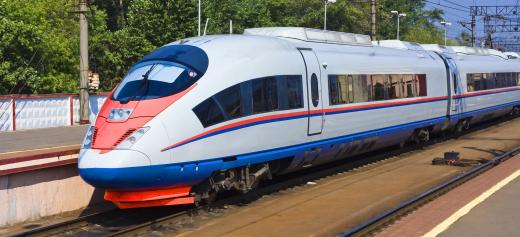A wheel lathe is a machine tool used in the manufacturing and reconditioning of wheels for railway cars. Wheel lathes are used to re-cut the profile of the wheel in cases where the wheel has been worn down or compromised because of excessive use. Like other lathes, the wheel lathe works by gripping the work object — in this case, the wheel — in a piece called a chuck and rotating the object across a single fixed cutting point. As the wheel rotates across the axis of the cutting tool, strips of metal are shaved off its surface. The machine operator controls the lathe and shapes the wheel in a process known as turning.
Several varieties of wheel lathes exist. Underfloor wheel lathes are large machines designed to re-profile wheels while the wheelset is still attached to the vehicle. These lathes improve manufacturing efficiency, but their large scale makes them ideal only for certain uses.

Portable wheel lathes are smaller machines that can be carried from place to place and are often used for emergency repairs in the field. Portal wheel lathes and horizontal lathes are stationary machines used in the machine shop. Wheel sets can be disassembled from the vehicle and loaded into these stationary wheel lathes for turning.
Modern wheel lathes incorporate computer numeric control (CNC) and usually are operated through automated programming. In CNC systems, the machine operator preselects parameters and dimensions for the wheelset, such as tread diameter and wheel profile specifications. A wheel lathe can be either partially or fully automated. CNC capacity streamlines the manufacturing process and provides closer and more specific control over the finished product.
Although wheel lathes are most commonly used to refine wheels from passenger and cargo railway vehicles, they also have broader applications. They can be used to recondition metal wheelsets from many types of vehicles. Subway trains, intra-city light rail vehicles and even miscellaneous non-rail vehicles with metal wheels require a wheel lathe for manufacturing and repair.
Wheel lathes are in demand in industrialized nations with heavily used rail infrastructure. Manufacturers of wheel lathes can often be found in such areas. Wheel lathes also can be purchased second-hand from machine shops or over the Internet.
